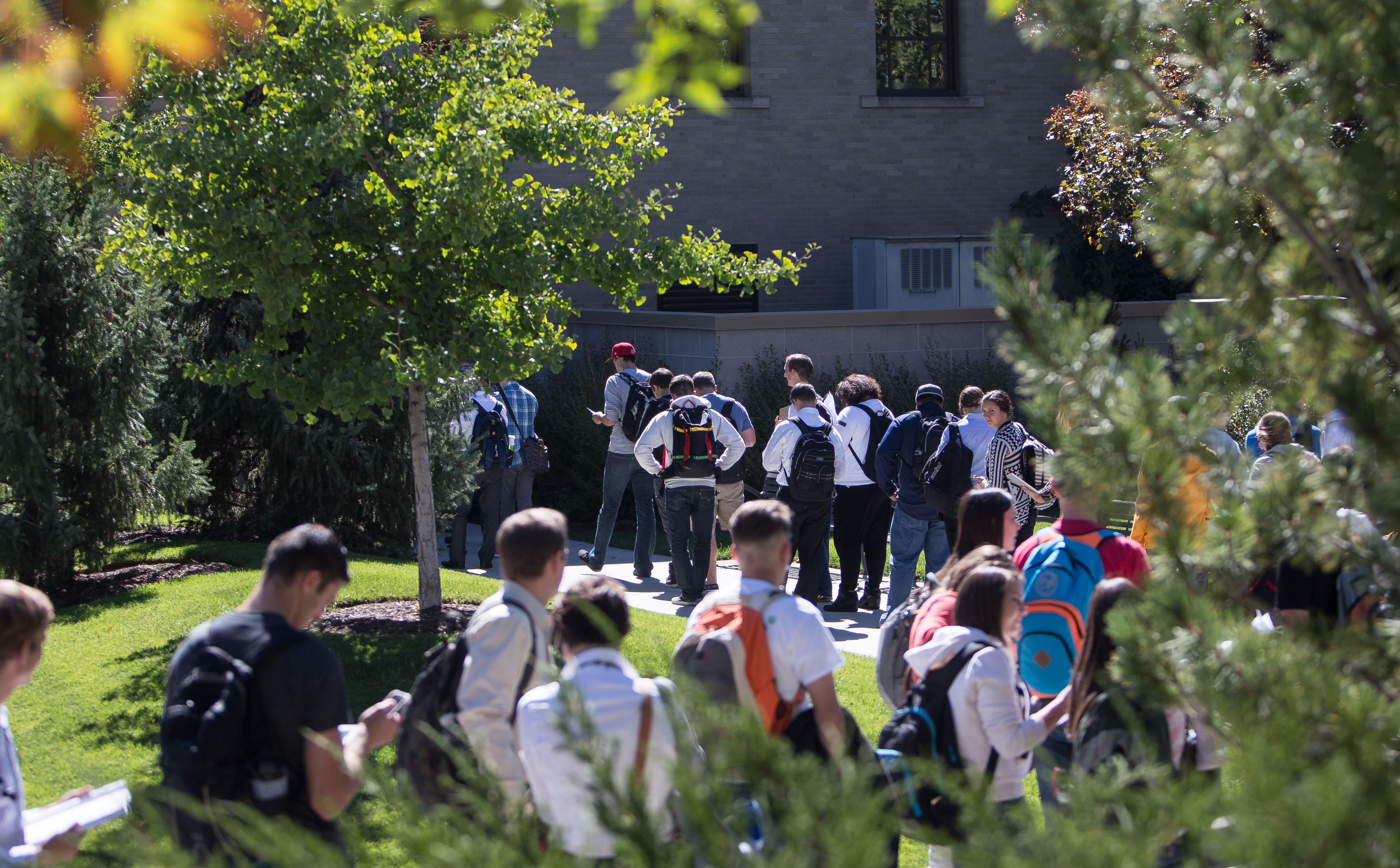
BYU’s Testing Center provides students with the opportunity to take tests outside of class to allow for more time and convenience. This can sometimes result in waiting in long lines and paying late-day fees, according to Manager of Academic Assessment at the Center for Teaching and Learning, Bryan Bradley.
“We give over 200,000 exams a semester, so that’s a lot that come in, so the model is that students come when a test is available. They can come anytime during the availability of that exam,” Bradley said. “The majority of them choose to come at the end of that window.”
Late fees are monies paid for taking a test after a period of availability without a fee.
Bradley said the Testing Center can’t accommodate all students taking tests without some kind of system to regulate it because there are only about 400 seats.
“We’re hoping that students that don’t want to pay a fee will just come earlier, and they do,” Bradley said.
The late fee is successful at regulating lines, making sure enough seats are available and keeping tests secure, according to Bradley.
“There are very few times that we have long wait times through the semester. Once in a while, we will get a convergence of students that are all deciding they’ll pay the fee and so they come late,” Bradley said. “We can’t predict that exactly, but we’re pretty good at spreading it out because the fee exists.”
University spokesman Tom Hollingshead said in an email the primary purpose of late day fees is to help spread out the days students take tests.
“Our data show that when no late fee is charged, the number of students taking tests on the last day ranges from 40 percent up to 80 percent,” Hollingshead said. “When late fees are charged, the range is between 30 percent to 40 percent.”
Hollingshead said the late fees are used to supplement the wages of student proctors but could not disclose the amount of money.
BYU economics professor Brennan Platt said he prefers to administer exams in the Testing Center instead of during class time.
“It gives a lot more flexibility for students as to when they take the test and especially how they prepare for it,” Platt said. “It allows them to do more studying if they feel like they need it, or take it right away if they feel like they’re ready, and to take it longer than one class period allows for.”
BYU chemistry professor Matthew Asplund also prefers to administer exams in the Testing Center.
“It allows us more learning time, so if I end up using three or four hours of class time administering tests, that’s less time we can be reviewing and talking about material,” Asplund said.
Platt said the Testing Center makes it easy for him to schedule tests.
“Their current system has it set up so that it takes into account how many other classes are scheduled to close at the same time,” Platt said. “It’s actually pretty sensible in that way.”
Asplund said tests are easy to schedule, but it got harder to schedule for a while with the demographic shift with mission ages.
“In general, if you’re scheduling ahead, it works,” Asplund said.
The late fee hasn’t always been implemented, though, according to Platt.
“They (require late fees) for multiple-day tests now. That hasn’t always been the case,” Platt said. “I’ve been here 11 years now, and for most of that time, they actually didn’t require late fees so I didn’t put one on, but they recently changed the policy.”
Race Peterson, an applied mathematics major, said the late fee does not encourage him to actually take his exams any earlier.
“I just take it, even if it’s a late day,” Peterson said. “It just depends on how prepared I am for the test.”
Peterson said a score penalty would encourage him to take a test earlier, but Platt and Asplund are not in support.
“That feels icky to me. It seems to me that the test needs to be measuring what they know,” Platt said. “I’d rather have a financial incentive than a score incentive.”
Bradley said if he could stress anything, it would be that the late day fee is not supposed to be a penalty.
“We would hope that nobody pays the fee, actually, and thousands and thousands of students here take tests without paying the fee,” Bradley said.




